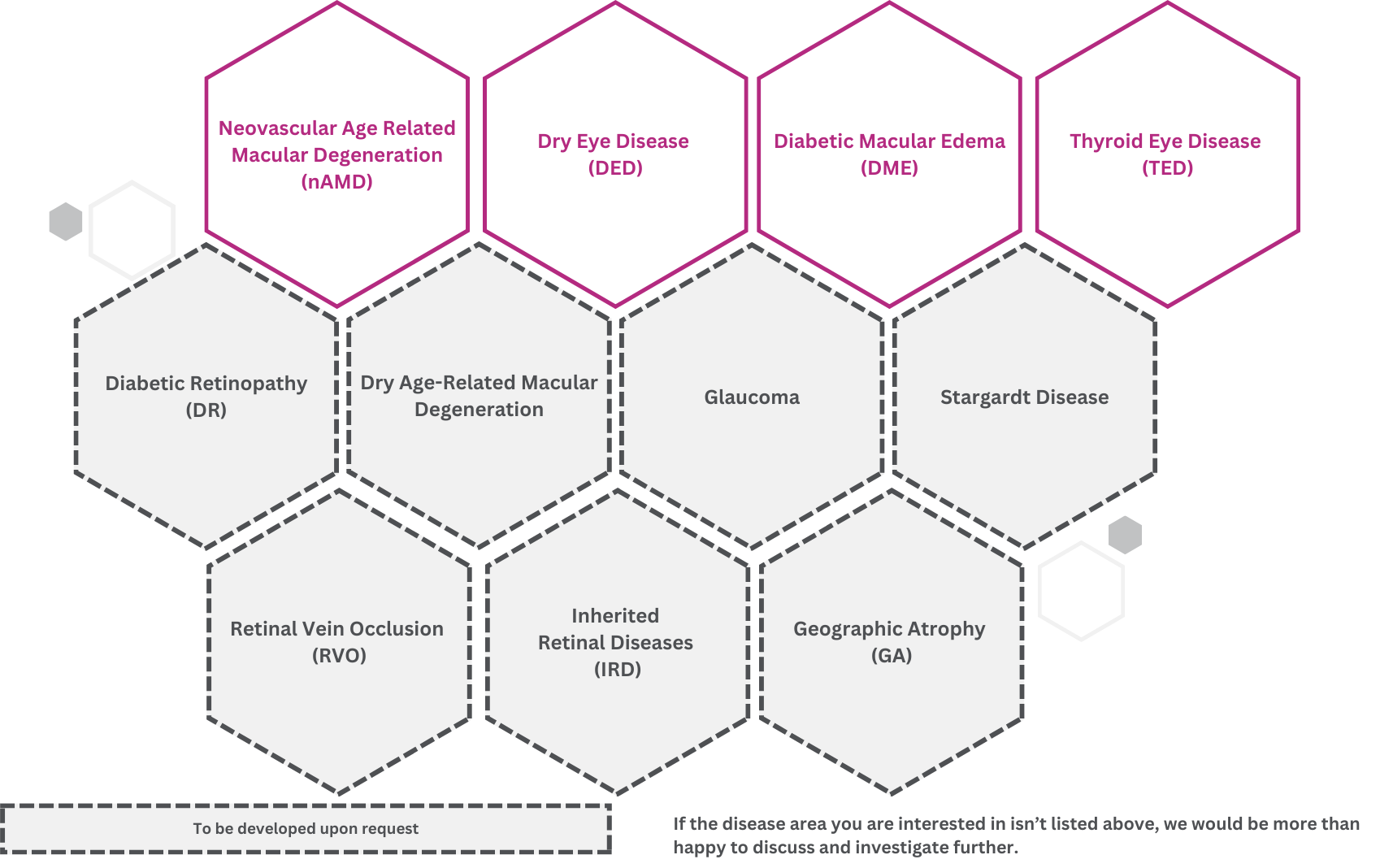Ophthalmology
Ophthalmic diagnoses can severely impact the quality of life of those affected. Many of these are older individuals who often suffer from several additional comorbidities, meaning the diagnoses themselves not only pose a significant impact on the patient, but also on their family/caregiver.
OPHTHALMOLOGY PORTFOLIO


As more seek out eye health-care, the impact on global resources will continue to rise. The need to provide effective care and offer affordable treatment options will continue to be an important challenge for healthcare providers to address. Establishing the needs of these at-risk groups is key to combating this.
Patient management guidelines within the ophthalmic space are limited. Physicians tend to rely on clinical scores and their own judgement of ocular imaging results to effectively monitor and manage patients. Although this can lead to personalised care, treatment approaches between physicians can largely be heterogenous, and hence it’s difficult to determine best standard practice. Furthermore, in some markets, treaters also need to navigate formulary/access restrictions preventing them from, sometimes, prescribing their treatment of choice.
As more seek out eye health-care, the impact on global resources will continue to rise. The need to provide effective care and offer affordable treatment options will continue to be an important challenge for healthcare providers to address. Establishing the needs of these at-risk groups is key to combating this.
Patient management guidelines within the ophthalmic space are limited. Physicians tend to rely on clinical scores and their own judgement of ocular imaging results to effectively monitor and manage patients. Although this can lead to personalised care, treatment approaches between physicians can largely be heterogenous, and hence it’s difficult to determine best standard practice. Furthermore, in some markets, treaters also need to navigate formulary/access restrictions preventing them from, sometimes, prescribing their treatment of choice.
The development of treatments with novel mechanisms of action and sustained effectiveness are likely to further alter the ways in which future medications across the area are prescribed – whether that be an alteration to the specific combinations of over-the-counter and prescribed medications, or the treatment strategy employed in an anti-VEGF regimen. Understanding this ever-changing dynamic, particularly in terms of how it directly impacts patients at both a humanistic and economic level, is crucial to the successful management of each disease.
The Ophthalmology DSPs are designed to offer insights into how this interplay is likely to affect the treatment landscape. They are also positioned to capture disease-specific clinical data, allowing for a greater understanding of the ways in which this patient heterogeneity influences care burden and resource use. Importantly, the suite of ever-growing Ophthalmology DSPs will continue to provide evidence to support the medical community in growing an understanding of how patients with ophthalmic diagnoses are managed and treated in real-world clinical practice.
THERAPY AREAS
Extensive therapeutic experience built up over 25 years of heritage in conducting Disease Specific Programmes™, now in over 100 therapy areas.